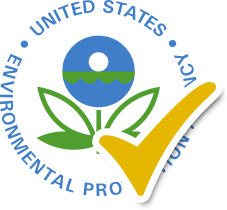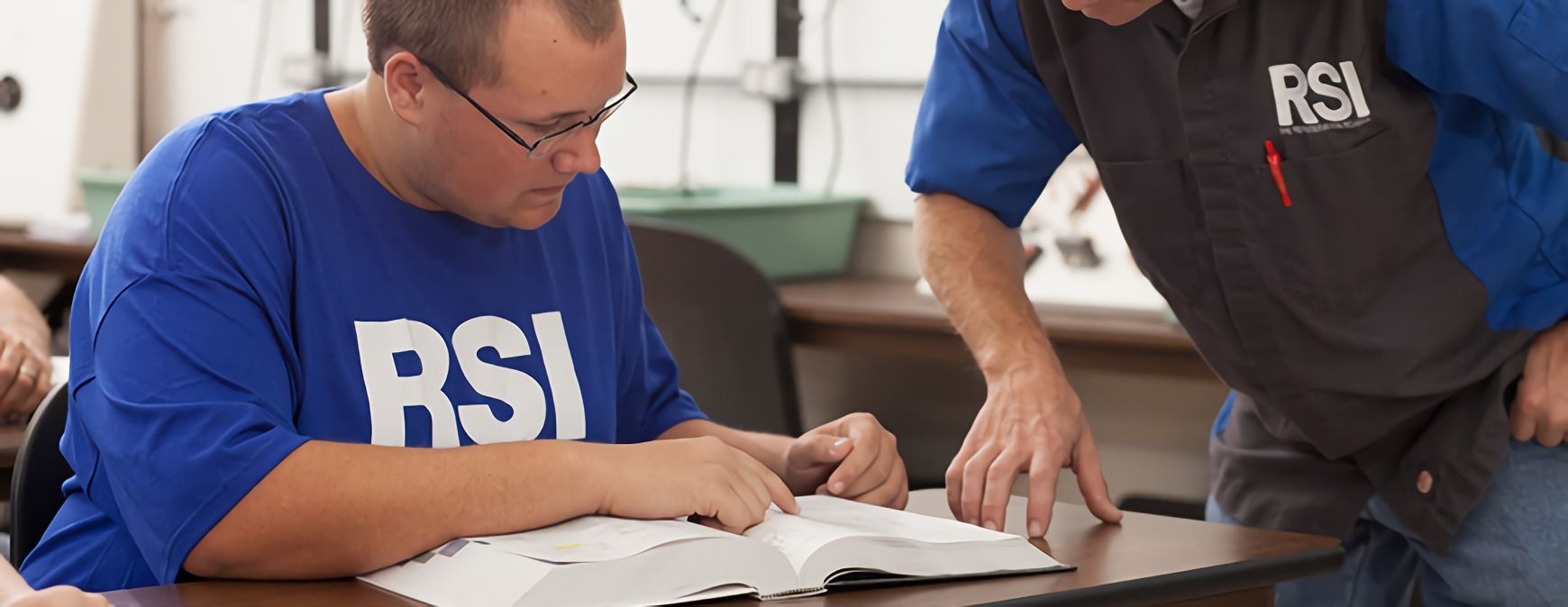RSI is a Great Training Option for Everyone
Learn more about how we can prepare you to advance your career.
Whether it’s a requirement of the state where you work or want to advance in your career, you will want a certification. If you handle refrigerants, you’ll need Section 608 Technician Certification from the Environmental Protection Agency (EPA). Some HVAC certification requirements are optional, but this one is a federal law. It applies to HVAC technicians across the country.
What Is Section 608 of the Clean Air Act?
Before you learn about this HVAC certification, it might help to know a bit about the law that requires technicians to have it. Section 608 of the Clean Air Act was created to prevent HVAC techs from knowingly releasing refrigerants that are bad for the environment into the air. These are refrigerants that deplete the ozone layer or contribute to global warming. In the coming years, some of these refrigerants, like R-22, will be completely phased out. Techs will need to know their R-22 replacement options.
Section 608 outlines refrigerant handling laws for HVAC technicians:
- HVAC techs must have at least one of four types of EPA certification depending on what type of equipment they work on.
- After certification, HVAC techs can only release tiny amounts of harmful refrigerants into the environment during the course of their work.
- Techs must follow specific guidelines for removing refrigerants from equipment, reclaiming refrigerants, and addressing leaks.
- They also have to abide by recordkeeping rules, as well as refrigerant purchasing and disposal laws.
What Is EPA Certification for HVAC?

If you service, maintain, fix, or dispose of equipment that might emit harmful refrigerants, you are required by the EPA to be certified. 1
Types of HVAC Certification
The EPA offers four types of HVAC certification. Each one is based on the kind of equipment you work on.
Get Started on the Path to a New Career
Fill out our form to learn how we can help you change your life.
- Type I: Small Appliances
- Type II: Medium to Large High-Pressure Appliances
- Type III: Low-Pressure Appliances
- Universal: All Appliances.
You’ll have to pass a different test to get each certification. 2
EPA Certification Test Topics
All of the Section 608 Technician Certification tests cover the same core set of topics:
- Ozone Depletion
- Clean Air Act and Montreal Protocol
- Section 608 Regulations
- Substitute Refrigerants and Oils
- Refrigeration
- Three R Definitions (Recover, Recycle, Reclaim)
- Recovery Techniques
- Dehydration Evacuation
- Safety
- Shipping
Each test also has a set of unique topics:
Type I
- Recovery Requirements
- Recovery Techniques
- Safety
Type II
- Leak Detection
- Leak Repair Requirements
- Recovery Techniques
- Recovery Requirements
- Refrigeration
- Safety
Type III
- Leak Detection
- Leak Repair Requirements
- Recovery Techniques
- Recharging Techniques
- Recovery Requirements
- Refrigeration
- Safety
Universal
- Covers the topics on Type I, II, and II 3
EPA Certification Practice Test
You don’t have to into the test cold. Reviewing EPA certification practice tests can give you a preview of the real ones. Plus, taking practice tests could be one way to prepare for the test. You can easily find practice tests online.
How to Get EPA Certification
Some people who want to become heating, air conditioning, and refrigeration mechanics and installers (49-9021) are enrolling in HVAC schools, notes the Bureau of Labor Statistics. 4 HVAC programs can help students learn about the fundamentals of refrigeration. Schools can help students acquire basic knowledge about refrigerants and the proper handling of them that will be helpful for passing the certification test.
Saving the Environment and Your Business
One of an HVAC technician’s main responsibilities is to understand the regulations and laws governing refrigerants. Properly handling harmful refrigerants will not only help the environment but also your HVAC business. Fines for violating the Clean Air Act can reach tens of thousands of dollars per incident. Multiple violations could add up to be quite expensive. 5 Even after you get your certification, it’s a good idea to stay current with these changes.
Additional Sources
1 – https://www.epa.gov/section608/section-608-technician-certification
2 – https://www.epa.gov/section608/types-section-608-technician-certification
3 – https://www.epa.gov/section608/section-608-technician-certification-test-topics
4 – https://www.bls.gov/ooh/installation-maintenance-and-repair/heating-air-conditioning-and-refrigeration-mechanics-and-installers.htm#tab-4
5 – Fundamentals of HVAC; Authors: Carter Stanfield and David Skaves; Air-Conditioning, Heating, and Refrigeration Institute; Second Edition; Textbook page 426
This blog has been labeled as archived as it may no longer contain the most up-to-date data. For a list of all current blog posts, please visit our blog homepage at https://www.rsi.edu/blog/




